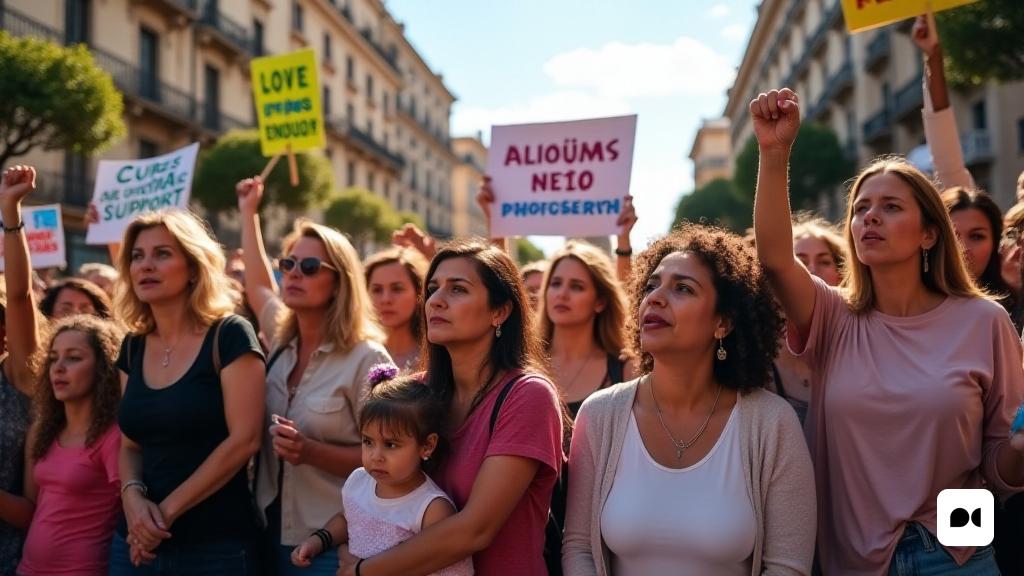THE INVISIBLE PAPER OF THE CAREFULS
A diverse group of women, which covers generations, is on the front of a daily combat to ensure the well -being of people with special needs. Most are children with severe disabilities, but there are also sisters who have taken care of the caregivers. This support network has decided to organize, claiming the recognition of its continuous effort, which does not cease on holidays or on weekdays.
The fight against precariousness
The needs they attend are varied, but they all share a common weight: the inadequacy of available resources. As Guillermina Sanisidro, an active member of the mothers union in functional diversity, points out, their main aspiration is to be able to exercise their motherhood without having to take multiple roles, such as therapists or nurses. ‘We want to be mothers, but we are forced to do everything,’ adds María José Tavira, who is also part of the organization.
DENIRE I ACTIVISME
The women of the union have raised their voices in both demonstrations and institutions, demanding a public co -responsibility that has not yet materialized. His active participation in the March 8 strike is a reflection of his discontent, emphasizing that love is not enough to meet basic needs.
A reality of invisibility
The message they want to convey is clear: care is essential to sustaining life. Despite the speeches on the importance of the care that emerged during the pandemic, the women of the union perceive that reality has not changed substantially. His struggle focuses on proper resources and fair care, both in the diagnosis and in the services that his children need.
Constant challenges
María José emphasizes that, since the birth of her children, they have had to fight to access diagnoses and care that are often insufficient. ‘We have to deal with a system that does not work,’ says Guillermina, who emphasizes that many mothers are forced to reduce their working hours or even quit work so that they can take care of their children.
Lack of resources and their impact
With a resource system that does not meet the needs, caregivers are trapped in a vicious circle of precariousness. “Our children are seen as an expense,” laments María José, saying that the lack of training of workers who care for their children adversely affects their health and well -being.
The reality of exclusion
The mothers of the union encounter the harsh reality of social exclusion and institutional neglect. “The idea of co -responsibility does not exist,” says Guillermina, who observes that many women alone take on the load of care, while men often disengage. His struggle is not only for his families, but also because of a structural change in society.
Claim of rights
With a social services system that does not meet their needs, caregivers claim fundamental rights. “The right to take care of and being careful must be recognized,” they say, emphasizing that care should not be exclusively for the women of the family. Their demand is clear: appropriate resources to guarantee a dignified life for both their children and themselves.
The future of care
As they move in their fight, the mothers of the union continue to reflect on their role in society. ‘We don’t just want to be caregivers; We want to be able to choose our way, ” concludes María José. Their activism is a call to society to recognize and value the invisible work they do, and to demand a system that guarantees the rights of all people.

